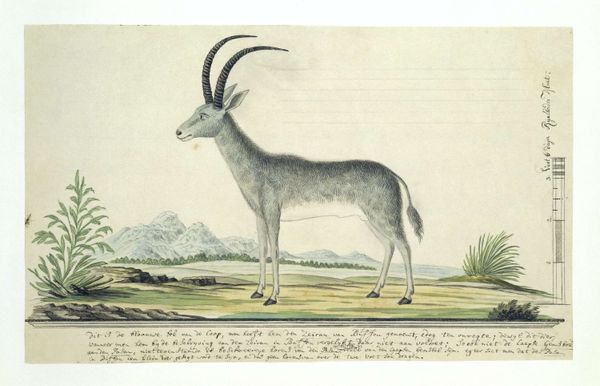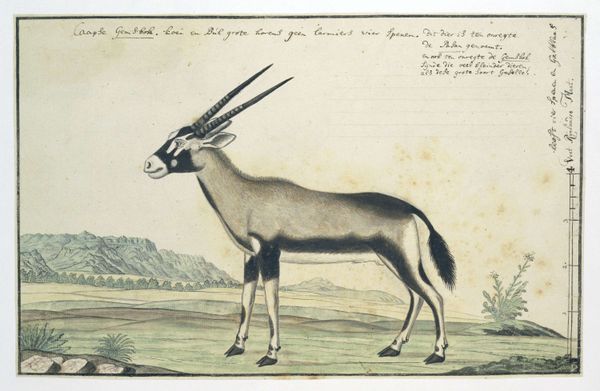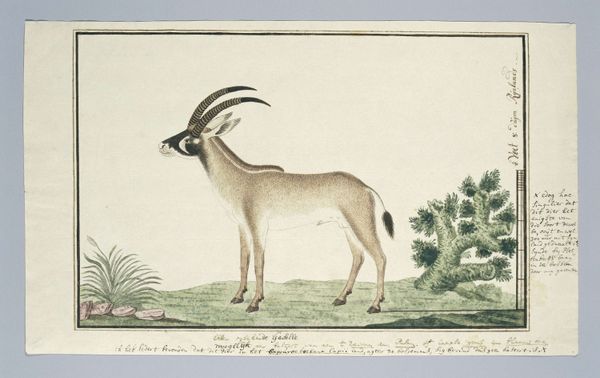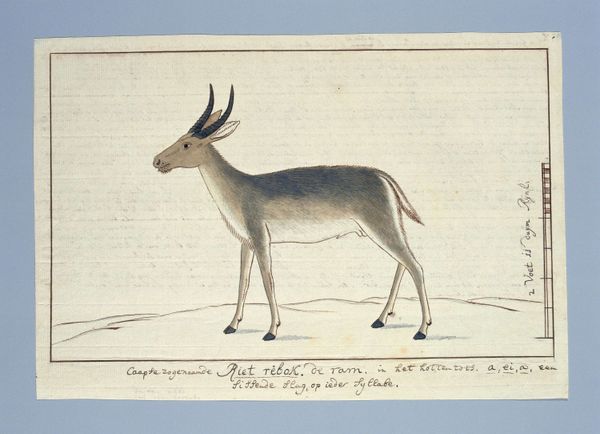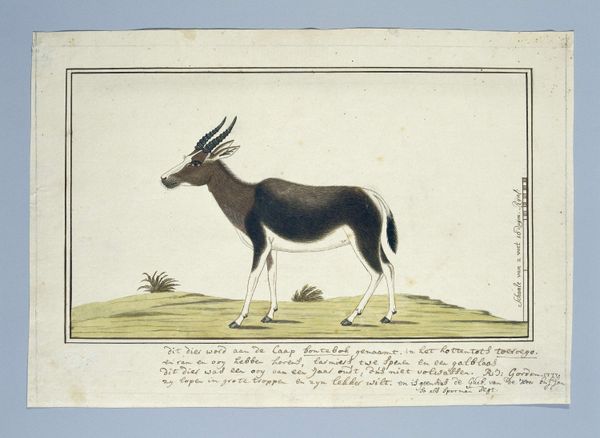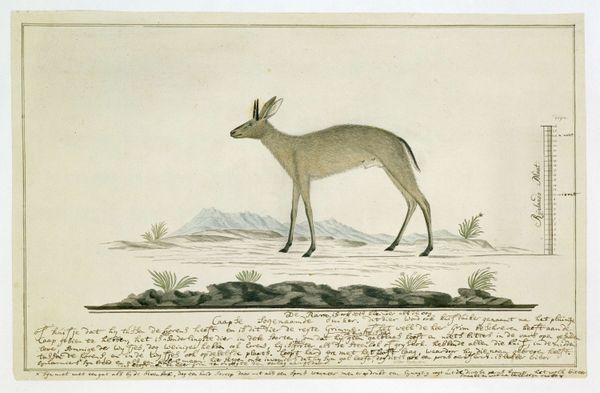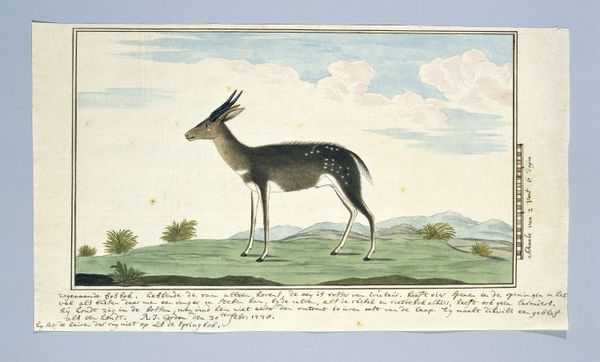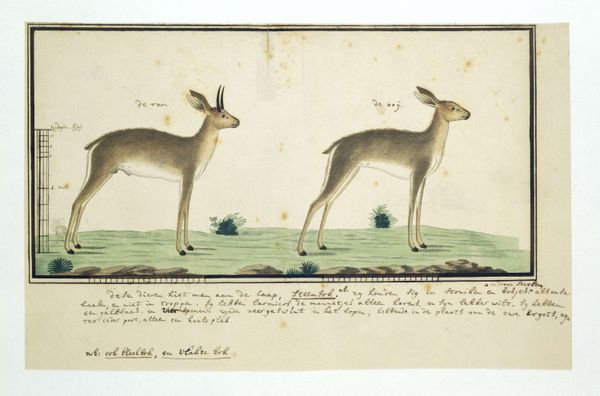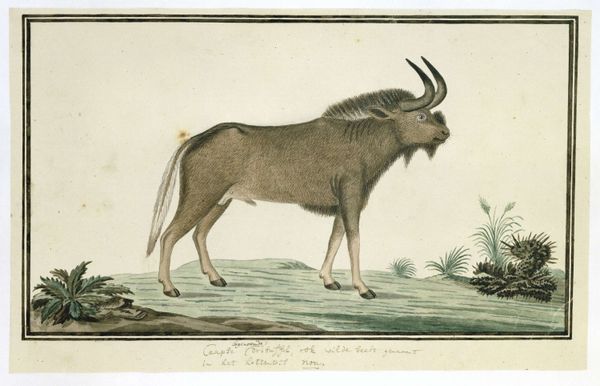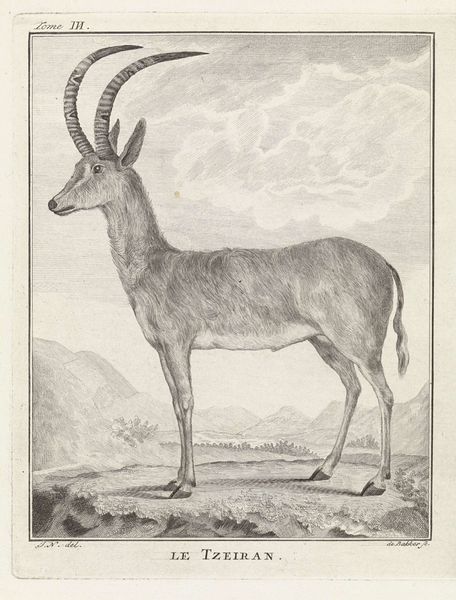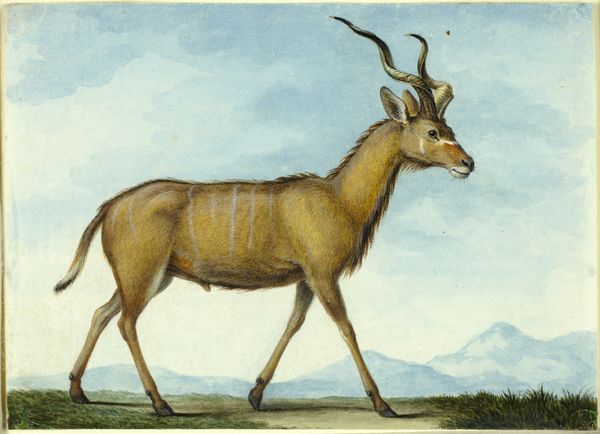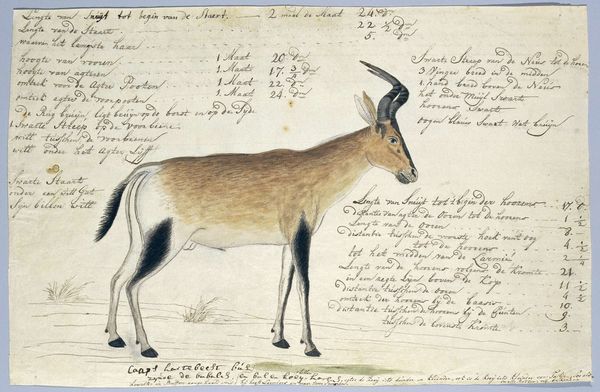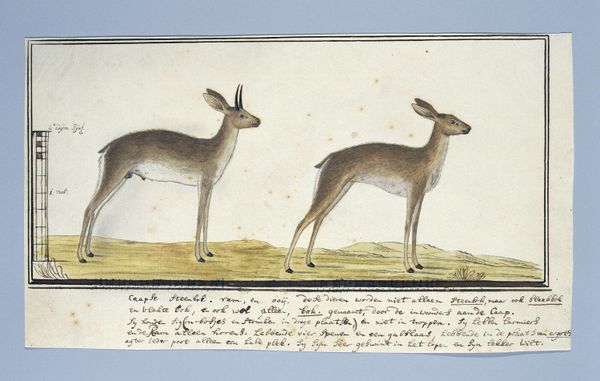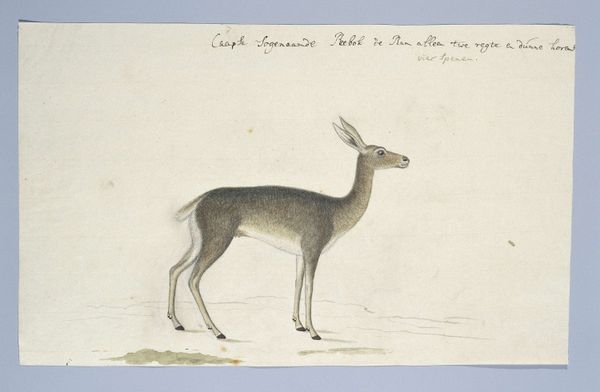
drawing, coloured-pencil
#
drawing
#
coloured-pencil
#
animal
#
landscape
#
coloured pencil
#
watercolour illustration
Dimensions: height 660 mm, width 480 mm, height 351 mm, width 410 mm, height 272 mm, width 410 mm
Copyright: Rijks Museum: Open Domain
Editor: This colored-pencil drawing, "Taurotragus oryx (Eland)" by Robert Jacob Gordon, likely from the late 1770s, feels very much like a scientific record. What strikes me is the way it blends artistic skill with what appears to be almost clinical observation. What's your perspective on this work? Curator: It is fascinating how such images blur the lines between art and scientific documentation. Think about the context: Gordon was an explorer and military commander working for the Dutch East India Company. His artistic output was largely dictated by his colonial expeditions. Editor: So it was more documentary than aesthetic? Curator: Precisely! These weren't created solely as artistic expressions. They served to catalog, classify, and claim. Consider the way the animal is positioned – almost surgically presented, divorced from its natural habitat except for the token greenery. It highlights the colonial gaze, reducing the animal to a specimen within a European framework. Editor: So the "scientific" feel masks a political agenda? Curator: Absolutely. The details like meticulous coloration and scale indications underscore a desire for control through knowledge. It reflects the broader political and cultural ambition to categorize and, in essence, own the natural world of the Cape. Editor: It’s surprising how much is revealed through seemingly objective art! Curator: Indeed. Studying the history and purpose of artistic creation expands how we consider each work on display. It transforms what may seem a tranquil animal portrait into a telling statement about colonialism and early scientific practice.
Comments
No comments
Be the first to comment and join the conversation on the ultimate creative platform.
